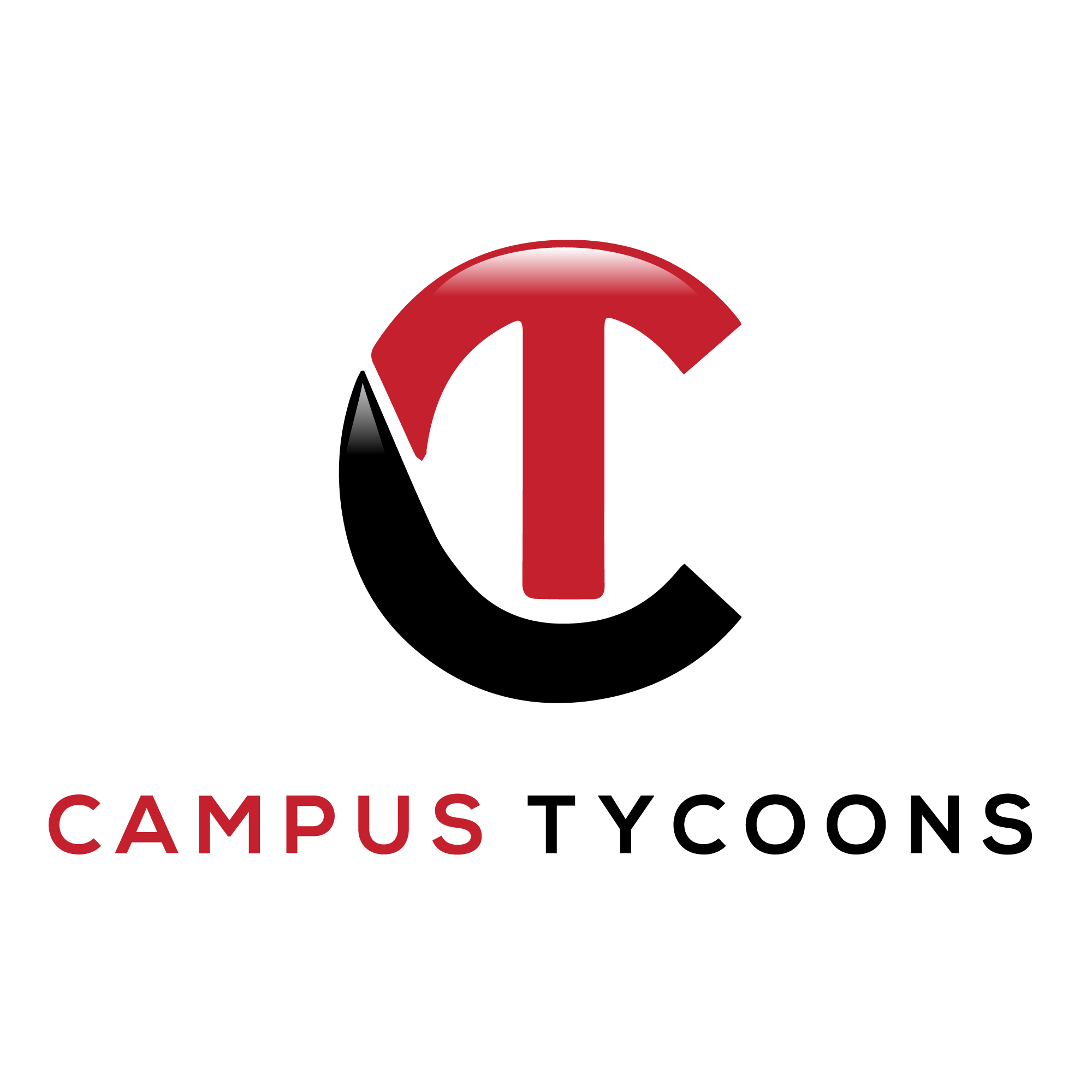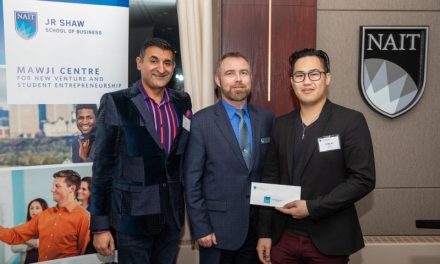The Student Startup aims to eliminate the headache of finding a place to live for students by providing the most affordable accommodation, off-campus.
Elev was created by a student at the University of Alberta, Kevin Mpunga, who himself faced a lot of troubles in finding a convenient place to stay as a student, to establish better landlord-tenant relationships across the country and save the post-high school students, from the stress of finding an affordable yet comfortable place to stay while focusing on their education. The team of Elev share a collective ambition and this is what defines it’s culture.
Tell us a little bit about your background.
Born and raised in Kinshasa, DR Congo, I immigrated with my family to Canada in 2011. Since then, I’ve bounced around many cities in Alberta, starting with Calgary for three years, Grande Prairie for four years, and I now in Edmonton —first for school, now permanently. I attend the University of Alberta, taking a Bachelor of Science in Bilingual Nursing. For as long as I can remember, I’ve always had an entrepreneurial mind, reselling candy at seven years old, selling printed anime artwork in middle school, and flipping electronics and even cars in high school. However, my unwavering interest in the medical field and the opportunity to save lives led me to opt for a nursing program, instead of business degree. Though my academic path is far from the typical entrepreneur, the skills I’ve learned so far in Nursing, namely critical thinking, decision making, time management and prioritizations, have proved indispensable in my Entrepreneur life.
I am a simple man; I love to cook, play basketball, read books, take photos (Shameless plug: check out my photography page @mpungapicha), meet people, and most importantly, solve problems.
What is the story behind starting ELEV?
In the spring of 2018, as I was preparing to start university the following Fall, the USA announced significant increases in cost for on-campus residences and meal plans, effectively pricing me out; I then had to find alternatives off-campus. Looking for a rental for the first time, in a city five hours away, that I’ve never lived in, proved to be a tedious and stressful experience. To the best of my knowledge, there was no centralized registry for off-campus housing for students, let alone a platform that made it easier for students from out of town (and country) to schedule viewings, sign leases and pay for their rents. My friends (roommates-to-be) and I searched through hundreds of listings and were either priced out, out-competed by working professionals, or were constrained by our current locations.
We had to endure the entire process again in the summer of 2019, having to find another place to live. After going through the difficulty again, my friend (now co-founder, Abêzghi) and I started brainstorming on how we can save thousands of post-secondary students, the pain we that had to endure twice. In December of 2019, the idea of providing affordable and quality off-campus housing bred Elev. We have since pivoted from actually building and owning these homes, to facilitating the access to already existing homes. We’ve been continuously ideating, testing and pivoting to the version of Elev we currently have.
What was the source of your initial funding for ELEV?
So far, Elev has been entirely bootstrapped. Every single dollar came from summer savings, side hustles and even some from Student Loan funds. We had to make serious adjustments to our lifestyles to squeeze out as much money as we can. Once we have a solid proof of concept and are entering a growth phase, we plan on seeking out external funding, but for now, we continue to pull up those straps.
What is your mission, and do you see yourself continuing with this effort even after graduating?
Our mission is to establish a simple way to access alternative housing options for post-secondary students and to better landlord-tenant relationships all over the country. We will not stop until it is common-knowledge that if you are attending post-secondary school and cannot afford (or simply don’t want) to live on-campus, Elev is your all-in-one answer. We want to eliminate the headache of finding a place to live so students can focus on their academic endeavors. Our entire team is committed to realizing this vision, and we will continue until it is a reality.
Who all have been influential in this journey? You may include family, friends, mentors, books, etc.
I’m are real-estate enthusiast, I’ve always envisioned being involved in real estate, one way or another. This interest is credited to my father, who from an early age taught me the possibilities and powers of real estate. And for myself personally, I’ve been very fortunate to be mentored by my good friend and ex-coworker Bill, a real estate investor himself. He’s shared with me a lot of valuable knowledge and wisdom, real estate and otherwise, and continues to be a valuable voice in our progress today.
The book How to Win Friends and Influence People by Dale Carnegie remains to this day the single most useful book I have read. The book has essentially rewired my entire character and taught me the powerful art of interacting with people. I credit a lot, if not most, of my people skills to this book and recommend it to everyone!
What are some of the challenges you see in being a student entrepreneur?
I’m tempted to say the time allocation between school and business, but effective time management fixes it. I think the biggest challenge has been to have to “switch” thinking gears. As student nurse, there is a particular way that I must arrange my thoughts and reasoning, and my approach to problems and challenges are very different than my Entrepreneur-self. I could write a whole essay on this; in short, having to constantly switch between two very different mindsets has definitely proved to be one of my greatest challenges. It has, however, forced me to be agile-thinking and to see nursing and entrepreneurship problems from several different perspectives simultaneously, a trait that today has become one of my biggest strengths.
How much time do you and your team spend working on your company?
Our entire team has the company in mind 24/7; we are constantly working on and for it, whether in thought or action. During regular school days, we spend over 20 hours a week each, this time is reduced during exam seasons, and close to doubled during off-time.
Do you see academics getting affected?
When I first started, I was worried that my schooling would take a huge hit, but I’ve seen a surprising steady state in my GPA. I have been spending more than 75% less time studying; having so little time to study has actually forced me to continually find faster and more effective ways to learn and apply course materials —I reckon this is the reason why my GPA has not decreased.
What is the one thing that keeps you going?
The clear vision that was established from the start has been our North Star through the ups and downs, challenges and pivots. We have not been discouraged because we can see exactly where we are headed, though a long journey away, the star is bright and continues to light the way forward.
What are some things you wish you knew a year (or two) ago?
Two years ago, I wish I knew that I already knew everything I needed in order to start a real business, everything else was going to be picked up along the way.
In the past, I had been reluctant to start a long-term business, fearing that I was not yet able to, or lacked the necessary knowledge to start. In hindsight, this is the opposite from the truth; as the famous saying goes, the best time to plant a tree is 25 years ago or today. The key, in my opinion, with entrepreneurship, is to believe you are capable, and that you know everything you need to know at the moment and to understand that the things you will need to know tomorrow will come from experience and active, relentless pursuit for improvement.
What are some of the tools or resources that have helped you? (Apps, websites, anything)
Books and audiobooks have been the single biggest contributors to self-improvement and advancement of the company. If you are unsure what to read, think of a key concept, search up associated books and read the first thing you find. This has helped me get introduced to certain topics and aspects of business, which then insight a more educated search for the next book, which guides me to the next, and so on.
Google, Crash Course (entrepreneurship), Slidebean, Y Combinator (Start-Up school) are also other valuable resources that have helped me. There are millions of resources available on the internet, but none mean anything without action and implementation.
How do you prioritize your activities in a day/ week?
Stephen Covey’s 4 Quadrants of Productivity taught me how to prioritize my tasks. I’ve been arranging my to-do lists using this tool for almost three years and I’ve seen my productivity skyrocket! I’ve used it so much that when I think of something to do, I automatically and mentally classify it and take action accordingly. I’ve been able to minimize Quadrant IV activities, cut down on Quadrant III activities and spent the majority of my time in Quadrant II in order to avoid filling up my Quadrant I. I recommend this, and his book 7 Habits of Highly Effective People to any person trying to become just that effective.
Illustration from: https://www.bishophouse.com/productivity/coveys-4-quadrants-summary-productivity-tool/
Anything else you would like us to know about you or your organization?
Elev is a young start up, created and lead by young people. Our collective ambition and audacity are what defines our company culture. We are always looking for more help, regardless of the field. If interested in being part of the future, shoot me an email at kevin@elevhomes.ca, and we will have a chat over (virtual) co




